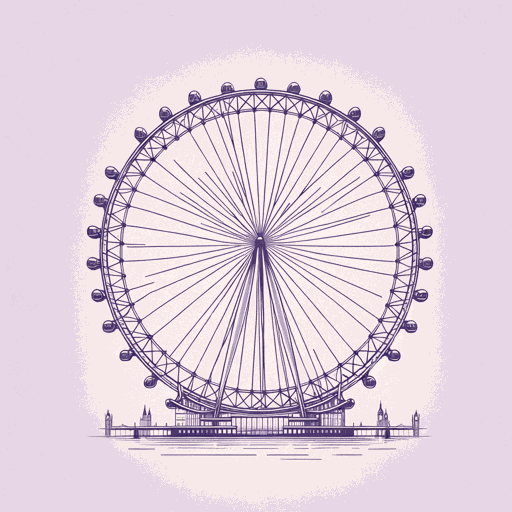58 pages • 1 hour read
Siobhan DowdThe London Eye Mystery
Fiction | Novel | Middle Grade | Published in 2007A modern alternative to SparkNotes and CliffsNotes, SuperSummary offers high-quality Study Guides with detailed chapter summaries and analysis of major themes, characters, and more.
Important Quotes
“From the top of the ride, Kat says London looks like toy-town and the cars on the roads below look like abacus beads going left and right and stopping and starting. I think London looks like London and the cars like cars, only smaller. The best thing to see from up there is the river Thames. You can see how it loops and curves but when you are on the ground you think it is straight.”
(Chapter 1, Pages 1-2)
Ted has autism and observes the world in a manner different from others. His descriptions have a calm logic to them and are unbiased by the emotions of others, giving the narrative a singular viewpoint. He takes great, if rather scientific, interest in his surroundings, and he feels sad when his ride ends on the London Eye.
“[T]he Barracks was the local name for Barrington Heights, the tallest tower block in our South London borough. It used to be where people who are socially excluded lived. Being socially excluded is a bit like being excluded from school. Instead of a head teacher telling you you have to leave, it’s more that everybody in the rest of society acts like you don’t exist. And you end up with all the other people who are being ignored. And you’re so angry that society is treating you like this that you take drugs and shoplift and form gangs in revenge.”
(Chapter 2, Page 10)
Ted’s description of public housing gets to the core of the social and political issues that surround the topic. He has a knack for seeing things just as they are, without opinions and judgments. He also understands intimately what it’s like to feel left out of society, and he can sympathize with others who find themselves rejected by others. The mention of the Barracks early on also serves as an example of “Chekhov’s gun,” a narrative principle stating that if a the narrative mentions an object (for example, a gun hanging on a wall), that object should come into play later in the tale—and, indeed, the Barracks will return to haunt the story.


